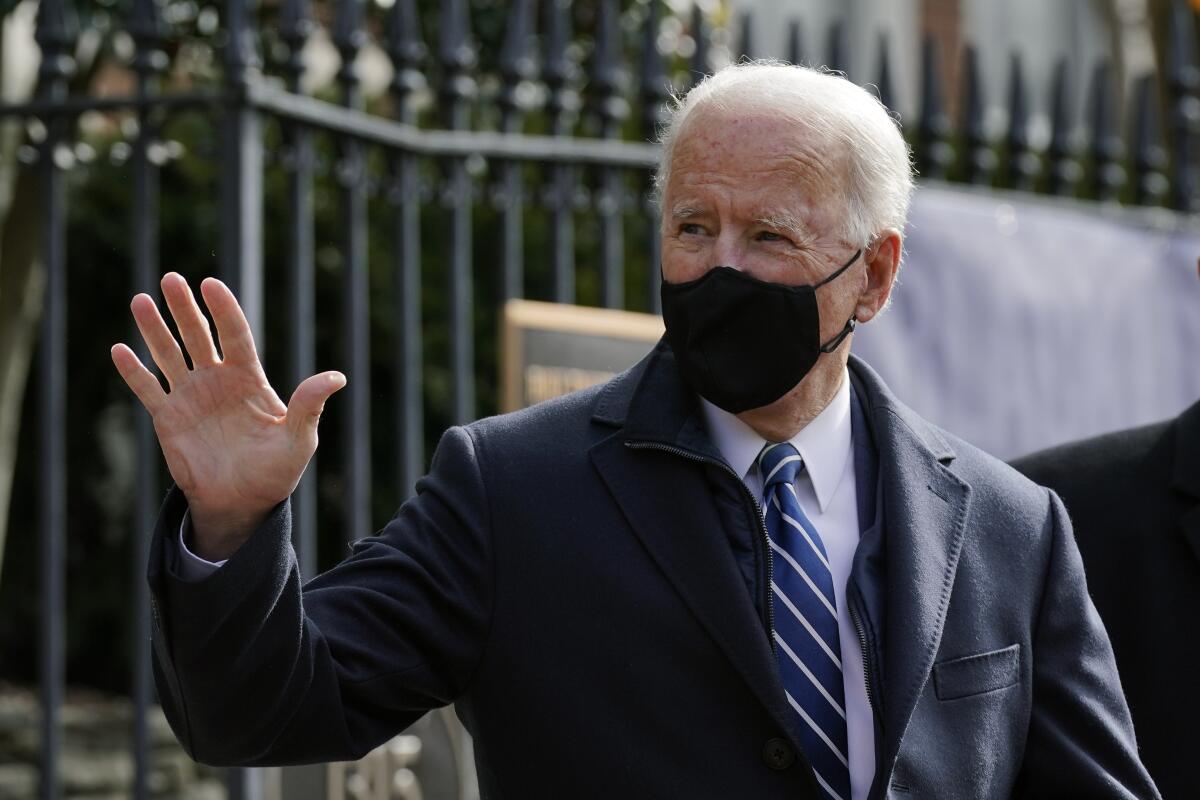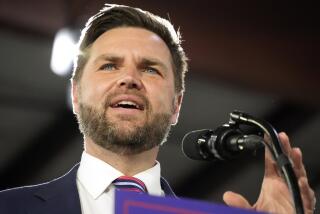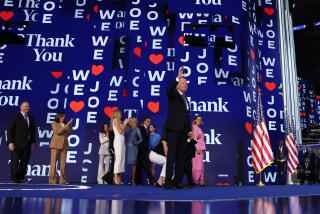What Joe Biden means for Catholics in America

Watching the first weeks of Joe Biden’s presidency unfold on TV from her Bronx apartment, Natalia Imperatori-Lee saw a bit of herself in America’s new leader.
Like her, a mom of two Catholic school kids, Biden was a regular at Sunday Mass. In clips of him in the Oval Office, she glimpsed the rosary peeking out from his sleeve — reminding her of the prayer beads in the Cuban American home where she grew up. Reading reports of the president’s push to offer legal residency to millions of immigrants, she sensed the church’s teaching to “welcome the stranger among us.”
“I’m just proud to see a Catholic up there in the White House,” said Imperatori-Lee, a 44-year-old professor of ecclesiology at Manhattan College. “I don’t feel like he’s in your face about it, but if you pay attention you can’t help notice his faith. It’s like this quiet, motivating constant.”
After four years of a nominally Christian president who surrounded himself with conservative evangelicals, the Biden era has begun with a starkly different approach to religion. The first Roman Catholic in the nation’s highest office since John F. Kennedy, Biden has a liberal faith that closely aligns with many members of the country’s largest denomination who lean less rigid than their bishops and cardinals on matters of family and sexuality.
Biden’s support of same-sex marriage and abortion rights has spurred controversy and debate among clergy for running counter to church positions. Such is the American Catholic landscape, where Biden — reminiscent of an age when pews were full and parishioners bought Sunday papers on church steps after Mass — is a man who, like many in his faith, balances religious rituals and traditions with the ideals of a mainstream Democrat.
“He seems to me like a Pope Francis kind of Catholic,” said Imperatori-Lee. “A pious guy who people can identify with even if they are lapsed or cultural Catholics; someone who doesn’t engage in these ‘culture war’ issues but tries to build bridges.”
Biden, 78, has spoken candidly about his faith over the years, describing it as his “safe place” and prayer as a personal source of hope. In his memoir “Promises to Keep,” he wrote that growing up around priests and nuns in Delaware gave him a sense of the “sort of man [he] wanted to become.”
After the police killing of George Floyd last May, Biden sent Floyd’s family a videotaped eulogy in which he connected his beliefs to politics. “I grew up with Catholic social doctrine, which taught me that faith without works is dead, and ‘You will know us by what we do,’” he said, adding that Americans had to “ensure that all men and women are not only created equal, but are treated equally.”
In his short time in office, Biden has attended Mass at St. Joseph on the Brandywine Church in Greenville, Del., and Holy Trinity Catholic Church in Washington, where he also prayed as vice president. A Jesuit priest offered the invocation at the inauguration, where his first speech as president quoted St. Augustine. Displayed behind his White House desk is a photo of Biden meeting Pope Francis.
President Trump, who was baptized Presbyterian and identified as a nondenominational Christian by the end of his term, at times faced mockery for seeming unfamiliar with common Christian terms. He famously referred to 2 Corinthians incorrectly while speaking at Liberty University, a prominent evangelical institution. Some of Trump’s faith-themed photo ops, such as one of him holding up a Bible in front of a D.C. church after law enforcement tear-gassed peaceful Black Lives Matter protesters to clear a path, appeared tone-deaf to many Americans.
Evangelical supporters praised Trump for moving the U.S. Embassy in Israel to Jerusalem and for putting in place a rule that kept U.S. foreign aid from nongovernment groups that provide or “actively promote” abortion. The Biden White House has said the embassy will remain in the city, but he signed an order undoing the abortion policy during his first days in office.
While Biden has faced less criticism than Trump for his knowledge of the Bible, church leaders representing some 72 million U.S. Catholics have questioned how he applies it.
Last month, the U.S. Conference of Catholic Bishops, the church’s policymaking organization, released a letter saying Biden’s “piety and personal story” were “hopeful and inspiring,” and praising his “longstanding commitment to the Gospel’s priority for the poor.” But in the same letter, the bishops, led by Los Angeles Archbishop José H. Gomez, said the president’s policies would “advance moral evils and threaten human life and dignity, most seriously in the areas of abortion, contraception, marriage, and gender.”
The conference now has a subgroup looking into the “difficult and complex situation” of a Catholic president not fully in line with church positions. One potential question is on the Eucharist, which priests have diverged on over the years. In one incident on the campaign trail in 2019, a Florence, S.C., priest refused to let Biden receive Communion due to his views on abortion.
For Msgr. Michael Carruthers, a priest in Riverview, Fla., the presence of a Catholic president alone was notable.
“I wasn’t alive before JFK died, so this is a first for me,” said Carruthers, who leads Resurrection Catholic Church, a community of about 1,200 parishioners outside Tampa. “To have a faith-filled president is exciting, especially one that shares that idea of dialogue that is part of the Catholic tradition.”
Abortion and same-sex marriage were “important to note as differences between Biden’s views and church teaching,” Carruthers said, but he preferred to focus on areas of agreement. “His sense of social justice with immigration and care of the poor — that’s very in line with church teaching,” said the 57-year-old priest.
In Wichita, Kan., Father Dan Spexarth saw things a bit differently.
“A lot of my parishioners think of him as Catholic in name only. The issue of abortion is very important to them,” said Spexarth, lead priest at St. Catherine of Siena Catholic Church, a more traditional congregation of about 1,600 families. “I believe he’s a Catholic of strong faith. But that doesn’t mean he’s in communion with the church.”
Spexarth, 63, said Biden’s presidency could be good for the church because “it’s going to create a conversation about what it means to be a Catholic in good standing. That discussion has been a long time in the making and needs to happen.”
While it was once largely a given for Catholics to be Democrats, members of the church today are nearly evenly divided between the Democratic and Republican parties, according Pew Research Center surveys. Catholic Democrats are much more likely than their Republican counterparts to support the right to abortion and same-sex marriage. Overall, 56% of Catholics from both parties told Pew that abortion should be legal in “all or most” cases; those who attended Mass regularly were more likely to oppose it. Same-sex marriage is a less controversial issue for American Catholics, with 61% in support and 31% opposing it.
As only the second Catholic president in the country’s history, Biden is also creating another discussion on the church in America.
When Kennedy became president in 1961, his background as Irish American Catholic was in line with the majority of the church’s faithful in the country, who descended from white immigrants from Europe. He wasn’t known as a particularly religious politician, yet questions over his Catholicism were rampant. By the time he campaigned for president, opponents including Protestant groups openly questioned whether he would take orders from the pope, an issue he addressed in a 1960 speech to the Greater Houston Ministerial Assn.
“I am not the Catholic candidate for president,” Kennedy said to the Protestant group. “I am the Democratic Party’s candidate for president, who happens also to be a Catholic. I do not speak for my church on public matters, and the church does not speak for me.”
Like Kennedy’s ancestors, Biden’s immigrated from Ireland in the late 19th century, as well as from England and France. He was born in Scranton, Pa., a town that Irish Catholic industrial workers helped establish, and raised in and around Wilmington, Del., one of several East Coast cities with deep Irish Catholic roots.
“But today it’s just a little more than half of Catholics who are white” while 40% of the church is Latino, said Kathleen Holscher, an associate professor of religious studies at the University of New Mexico and past president of the American Catholic Historical Assn. “Younger Catholics are also more likely to be Latinos. So Biden represents a much different, older, whiter generation of Catholic culture in the country.”
That difference stands out to Felix and Rosa Lopez, Catholic parents of three who live in Sioux Falls, S.D.
Felix Lopez, a 36-year-old roofer who was raised in El Salvador, prays daily at Our Lady of Guadalupe, a Latino parish. In Biden, he sees a man who “is a great talker and can speak about the power of Jesus,” but said he feels the president falls short on abortion, an issue Lopez considers “a key part of the church’s teaching on life.”
Rosa Lopez, a Salvadoran American who moved to South Dakota from Central California and attends Mass less often — once a week at most — described Biden as a “really religious and Catholic, something that makes you feel good to see as someone leading the country.”
A daughter of immigrants, she said he speaks “really great ideas about immigration reform” — a view of migrants she sees at the core of the church’s mission. But “great ideas are just ideas until you see action,” she said.
She wondered how much the president’s personal faith would translate into policies.
“Religion is one thing, and it’s important,” she said, “but that’s only one part of being a leader of the country.”
More to Read
Sign up for Essential California
The most important California stories and recommendations in your inbox every morning.
You may occasionally receive promotional content from the Los Angeles Times.











